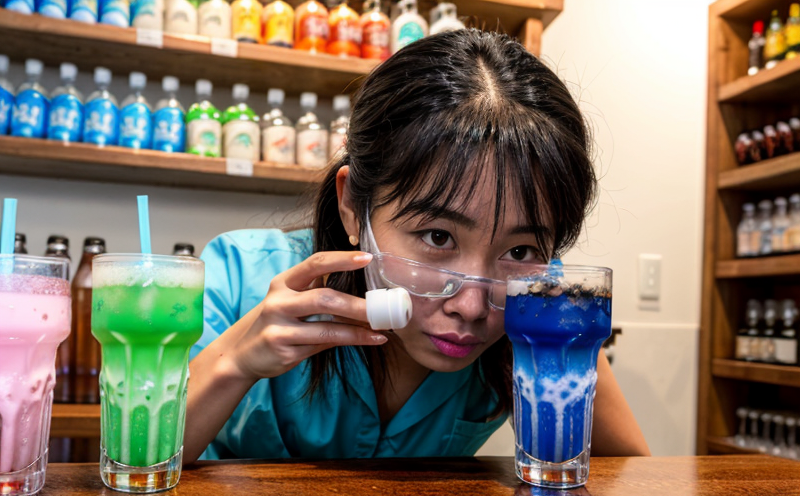WHO Guidelines Beverage Microbiological Safety Testing
The World Health Organization (WHO) guidelines on beverage microbiological safety testing are essential to ensure the safe consumption of beverages. These standards provide a framework for ensuring that beverages do not contain harmful microorganisms, which could pose significant health risks.
Compliance with WHO guidelines is critical in the food and beverage industry due to the potential for contamination during processing, storage, or distribution. The testing protocols aim to protect public health by reducing the risk of outbreaks from pathogenic bacteria, viruses, protozoa, and other microorganisms that can thrive in beverages.
The WHO guidelines emphasize the importance of a multi-barrier approach to microbiological safety, which includes proper design, construction, operation, maintenance, and cleaning of facilities. This holistic approach ensures that all stages of beverage production meet stringent hygiene standards.
For instance, when testing for coliform bacteria in beverages, the presence of these indicators suggests potential contamination by human or animal waste. The absence of coliforms is typically used as a surrogate measure of hygiene during processing and handling. Testing for Escherichia coli O157:H7, Salmonella spp., and Listeria monocytogenes is crucial to safeguard public health.
The testing process involves several steps: sample collection, transport, preparation, inoculation into selective media, incubation, and finally, the analysis of results. The WHO guidelines recommend that all samples should be tested for total viable counts, coliforms, E. coli O157:H7, Salmonella spp., and Listeria monocytogenes.
The testing methods used in this context include various microbiological techniques such as plate count method, most probable number (MPN) method, and colony-forming unit (CFU) analysis. The results of these tests are compared against established limits set by WHO guidelines to determine compliance with safety standards.
It is important to note that the choice of testing methods depends on the specific requirements of the beverage type and the regulatory framework in place. For instance, carbonated beverages may require different testing protocols from non-carbonated ones due to variations in packaging materials and preservation techniques.
Industry Applications
| Beverage Type | Testing Parameters |
|---|---|
| Soda Water | Total viable counts, coliforms, E. coli O157:H7, Salmonella spp. |
| Energy Drinks | Lactobacillus, Enterococcus faecalis, Candida spp., and other spoilage indicators |
| Fruit Juices | Total viable counts, E. coli O157:H7, Salmonella spp. |
| Alcoholic Beverages | Lactobacillus, Enterococcus faecalis, and other spoilage indicators |
Eurolab Advantages
Eurolab is committed to providing comprehensive microbiological testing services that align with WHO guidelines. Our state-of-the-art laboratories are equipped with the latest instruments and reagents, ensuring accurate and reliable results.
We employ highly skilled scientists who have extensive experience in microbiology, ensuring consistency in our testing methodologies. Our adherence to international standards such as ISO/IEC 17025 guarantees that our laboratory meets the highest quality requirements.
Our services include comprehensive testing for all relevant parameters mentioned in WHO guidelines. We also offer custom-tailored testing packages based on client-specific needs, ensuring that we meet each customer's unique requirements.
EuroLab’s proficiency in handling complex samples and its robust quality management system ensure that our clients receive accurate and timely results. Our experienced team is always available to assist with any questions or concerns you may have regarding your testing needs.
Competitive Advantage and Market Impact
- Comprehensive compliance with WHO guidelines for microbiological safety in beverages
- State-of-the-art laboratory facilities equipped with the latest instruments
- Highly skilled scientists with extensive experience in microbiology
- Adherence to international standards such as ISO/IEC 17025
- Custom-tailored testing packages based on client-specific needs
- Rapid turn-around time for results, ensuring prompt decision-making
- Educational resources and support for clients to understand microbiological safety in beverages





